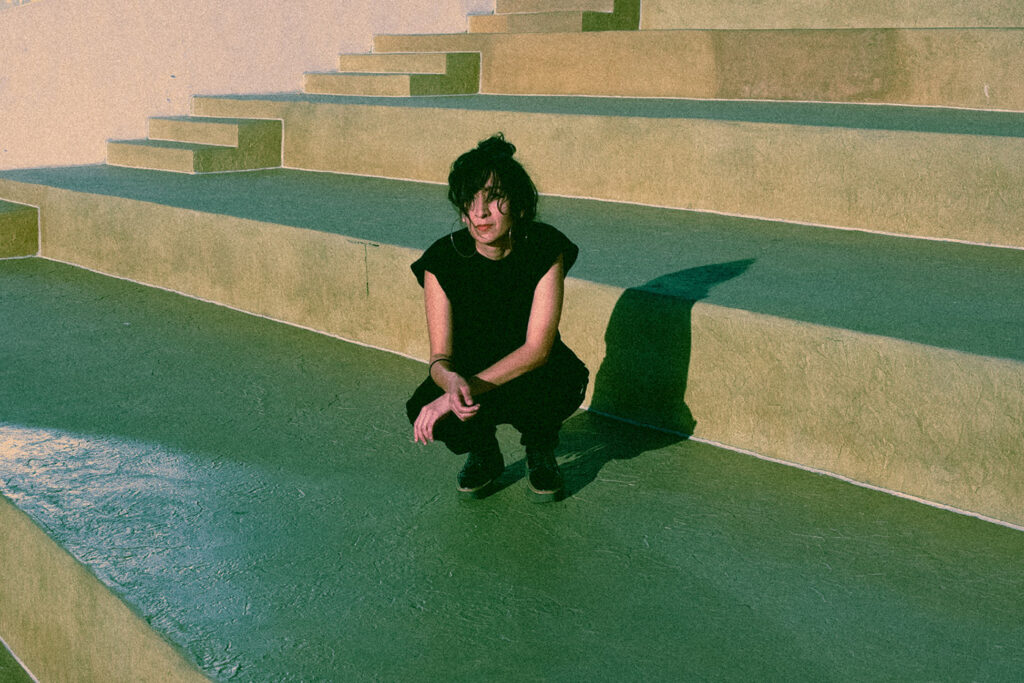
J. Zunz aka Lorena Quintanillaaka Lorelle, is the vocalist and guitarist of the shoegaze project Lorelle Meets The Obsolete from Guadalajara, Mexico. She forms the project with her friend The Obsolete aka Alberto González. They have released six albums, their debut in 2011, held in style of drone-rock, shoegaze and many other unusual streams that sound original and fresh when mixed together.
I, however, was more intrigued by her solo work, which she released under the name J. Zunz. She debuted in 2017 with the material ‘Silente’, released on limited edition cassettes. In her own words, it was a tentative start and an entry into new ground, but still very close to the Lorelle Meets The Obsolete universe. For the next material, “Hibiscus”, we had to wait three years, until 2020. Released on Rocket Recordings, it is already a bold, conscious creation of her own musical vision. Confirming this course into the unknown is the album “Del Aire”, released this year, where Lorena pushes the boundaries of her imagination even further and the listener is transported into ever more mysterious, trance-like and sometimes even hallucinogenic spaces.
The album “Del Aire” was recorded in the windy surroundings of Enseneda, Mexico, where Lorena was uda a lockdown (for known, covid reasons). The album exorcises the problems she encountered during this period, in the process of creating what she describes as ‘continuity and discontinuity’.
With the natural theme of air at the centre of the creative process, Lorena has created an extremely spacious work. Lorelle spreads her wings and, carried by air currents, gives herself over to pure musical meditation. The synths in ‘Lineal’ blossom into pulsating loops that could go on indefinitely. Elsewhere, as on “Del Aire”, melodic sounds spill across the space of the room in which we listen to this material. Both Lorena’s vocals and her distinctive, crystalline aesthetic are beautifully revealed in the reverberations of “Cruce” and “Horizonte”. Full of psychedelic overtones, the album pours its electronic avant glitch tentacles across a dark room set in the middle of the Mexican desert. Personally, I’d put “Del Aire”, for the moment, on the podium of albums of the year 2022.
The lucky ones had the opportunity to hear it on 21 July this year on the stage of Warsaw’s CHMURY club, where Lore gave an amazing performance, and where she also met a record-holder in terms of listening to her album… How many times did this individual listen to “Hibiscus”? You will read more than that below.
Artur Mieczkowski
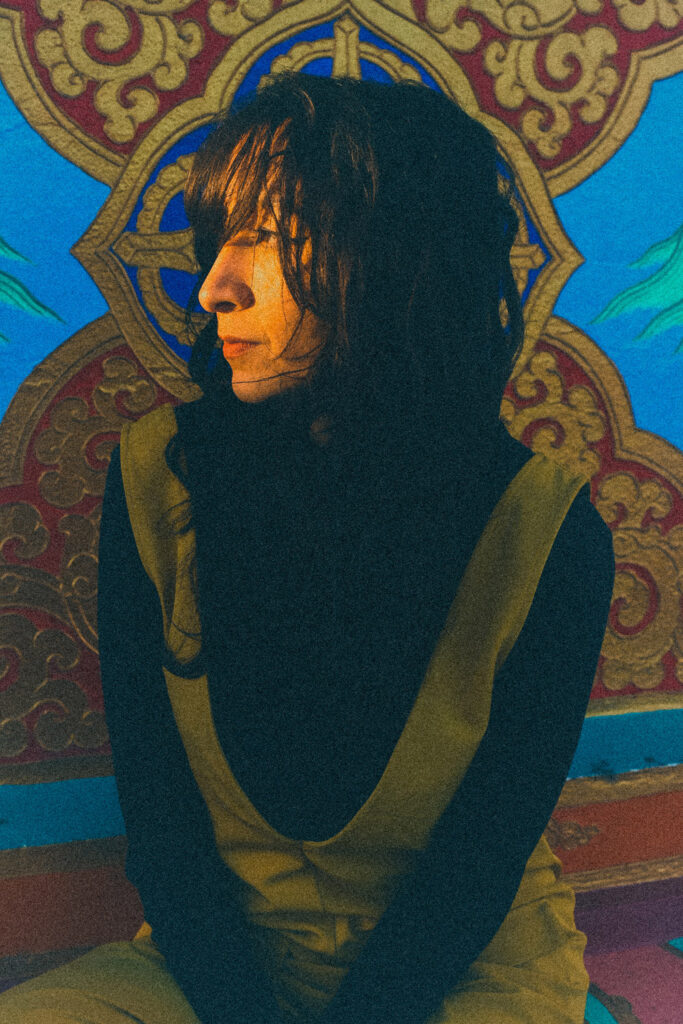
AM: Hi! You’ve just come back from your European tour. What are your impressions?
J. Zunz: That’s right, I’m very tired but super happy and recharged. Also grateful to my dear friend and booking agent Federico for booking such a special tour for me. I feel I managed to connect on every night with different audiences.
AM: Do you prefer larger spaces or smaller clubs?
JZ: I have had bad and good experiences with both. To me it’s more about being very careful with the energy I receive from the audience from beginning to end. If something goes wrong, then everything can change in a second.
AM: You also played in Poland, in one of Warsaw’s clubs, Chmury. What are your impressions of that gig?
JZ: That gig was one of my favorites. Good energy, good connection to the people, all thanks to the amazing promoter/musician SKY. I had the honor of feeling inside their beautiful underground scene for a moment. Also, I met my biggest listener there, a musician who said he listened to “Hibiscus” like 300 times. It was a nice night, I was just feeling very grateful at the end of that show.
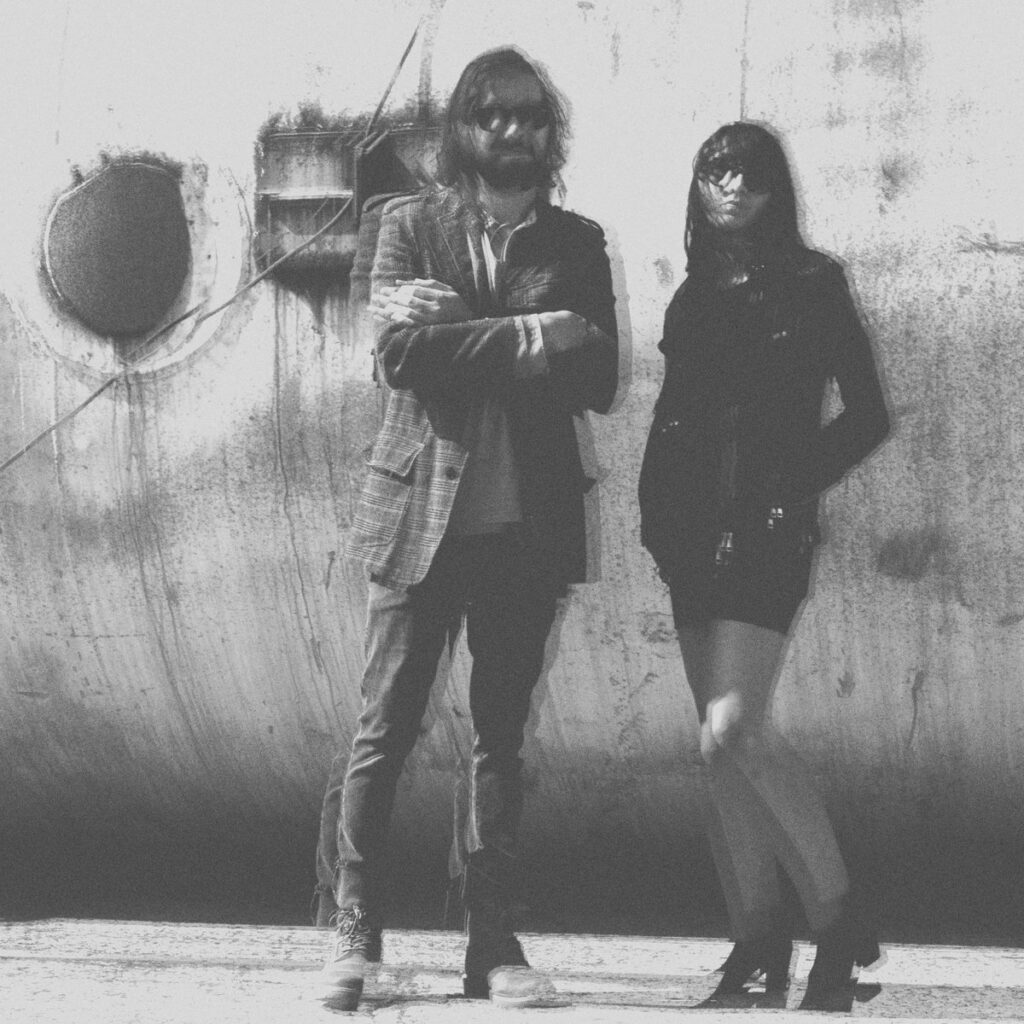
AM: Wow. I’m still far from such achievement but I must admit I listen to “Del Aire” very often and I think it is one of the best albums of 2022.
J. Zunz is your solo incarnation. So far, you’ve been known as vocalist and guitarist of shoegaze project Lorelle Meets the Obsolete. What made you go the solo path?
JZ: It was a natural bifurcation to me. I’ve been a full time musician for about 9 years now. As soon as I had more time to make music the ideas started to accumulate, for this reason I had to look for another outlet. My partner Alberto, from Lorelle, is also a graphic designer and an engineer/producer, but I only have the music.
AM: How do you manage multiple projects? Is Lorelle Meets the Obsolete still functioning as a band?
JZ: I adapt to the situations. At the beginning I was recording my solo stuff in between records of Lorelle, but because of the pandemic I recorded two J. Zunz in a row. Lorelle is still a duo.
AM: Lorelle’s music is often compared to heroin trip. How would you describe your solo work?
JZ: I wouldn’t dare to describe my own music, it’s difficult. It’s better to listen to the opinions from listeners.
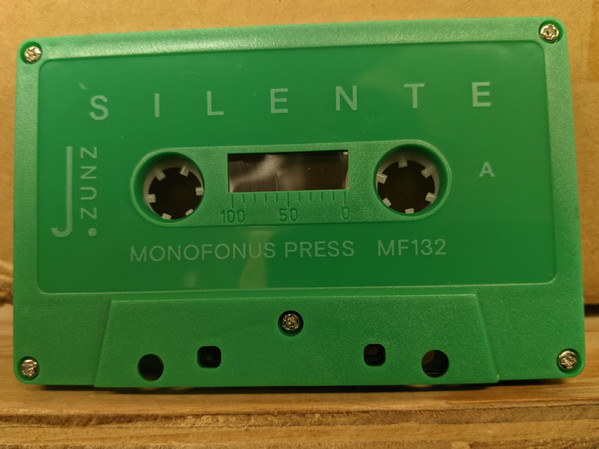
AM: You made your debut with the album “Silente” which was released on tape only. How would you describe that material towards your second project which is the Lorelle Meets the Obsolete?
JZ: I think that tape was a shy beginning and a transition but still very close to Lorelle’s universe.
AM: In 2020 the “Hibiscus” is released by Rocket Recordings.
I dare to say that here your musical identity takes a completely different shape – very minimalistic, focused on electronic music.
JZ: Yes, I think I left behind some attachments on that one. I had a personal transformation between ‘Silente’ and ‘Hibiscus’, that’s why the music sounds different. I sometimes feel those records were almost made by two different people.
AM: There’s plenty of psychedelic, trans playing, which “Four Women and Darkness” is a great example of. There is a music video created for the purpose of that piece that presents a very interesting concept of those four women. Could you bring us a little bit closer to that idea and what you want to express with that song?
JZ: That song is about some obscure story that my grandmother used to tell when I was a child. Strangely for me, music and lyrics came out at the same time. It developed very fast and in a very intuitive way. I had the feeling it already existed. It’s a very simple song but I think it carries, musically, all the darkness of the story behind.
AM: “America Is A Continent” is a very strong introduction to paranoidal mood. What is your concept for writing albums? Where do you get your inspiration from? Where do you want to take your listeners?
JZ: It’s very different with each album. I think the latest one had more concepts behind it. The idea of having air somehow inside every track helped me to unify the songs that were written in a dispersed way during the 2021.
Inspiration always comes from all over, it could come from a conversation, a line in a movie, mostly music I listen to, etc. But apart from those moments I have, I believe it is more about being constantly working in the studio. Rehearsing as much as I can.
About the listeners. I’m just trying to communicate with them. It’s easier for me to communicate with music than with words. I find very interesting the idea of connecting through music with people from contexts and experiences very different from mine.
AM: The idea of “less is more” in your case makes great sense. There are artists that operated within total minimalism such as Vide La Monte Young, Terry Riley, PHillip Glass, Steve Reich. Where, in your opinion, is the final line in pursuing such a way of creation?
JZ: I think there’s some infinity on it. I had a teacher in college who used to say that when you feel the infinity, it only lasts one second. Maybe I’m trying to expand the feeling of that second.
AM: “Del Aire” is your third album released this year by Rocket Record Company. The album was recorded in the windy area of Enseneda, Mexico. The title indicates that the above fact had a lot of influence on the creation process. Does the environment have an impact on your Psyche and the music you make?
JZ: Yes of course. This time it was more tangible as I spent so much time at home, because of the long lockdown, observing the wind and really feeling the impact it had on me.
AM: I have the impression that on the album you spread your wings and being carried by an airstream you fall into musical meditation. The “Lineal” – in my opinion – could never end. Just be forever looped.
JZ: That’s a very nice impression. I do feel I was looking for some freedom. I don’t deal well with the feeling of being trapped, in any way. This record helped a lot to release some of that feeling.
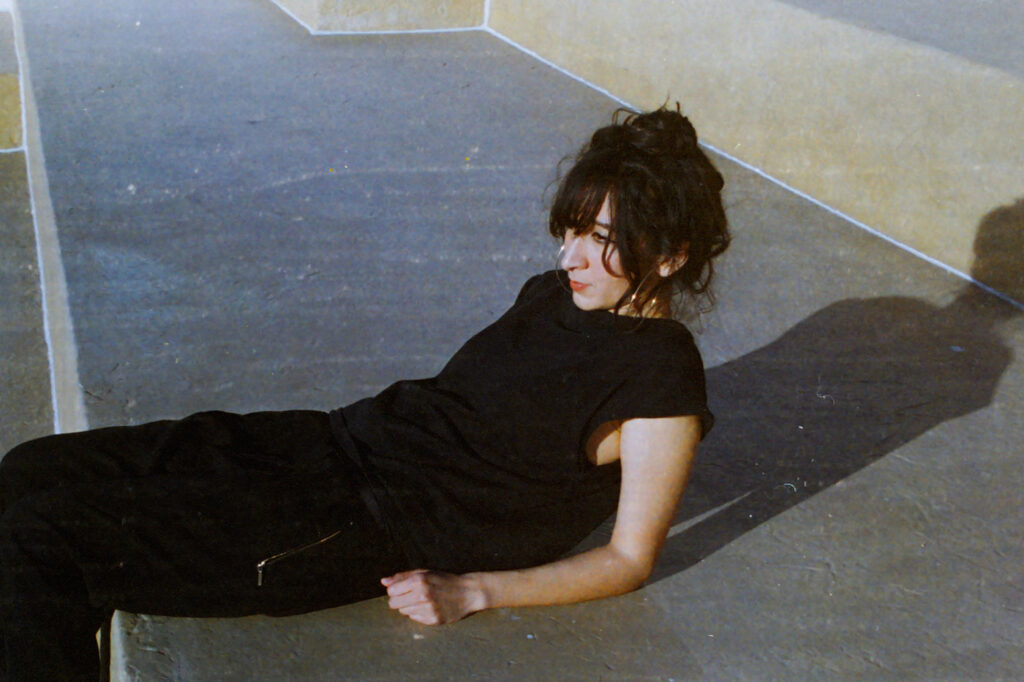
AM: There are also more disturbing pieces such as “Ráfaga” where rhythm breaks, glitches and reverbed vocals or the really strong ending of that song can put you into a state of psychosis.
JZ: “Ráfaga” was very fun to build. I had these two ideas in the back of my mind about having a song with just vocals and drums and also the idea of making a crescendo with drums. At the end I added some other sounds but it came out very effortlessly and it was fun to edit the drum tracks and to create the buildup. I didn’t expect it to sound like a state of psychosis ha, but I guess my subconscious came out somehow. I realized later that in that song I’m asking for help from a bird that is flying away. It made me think about my state of mind during those days.
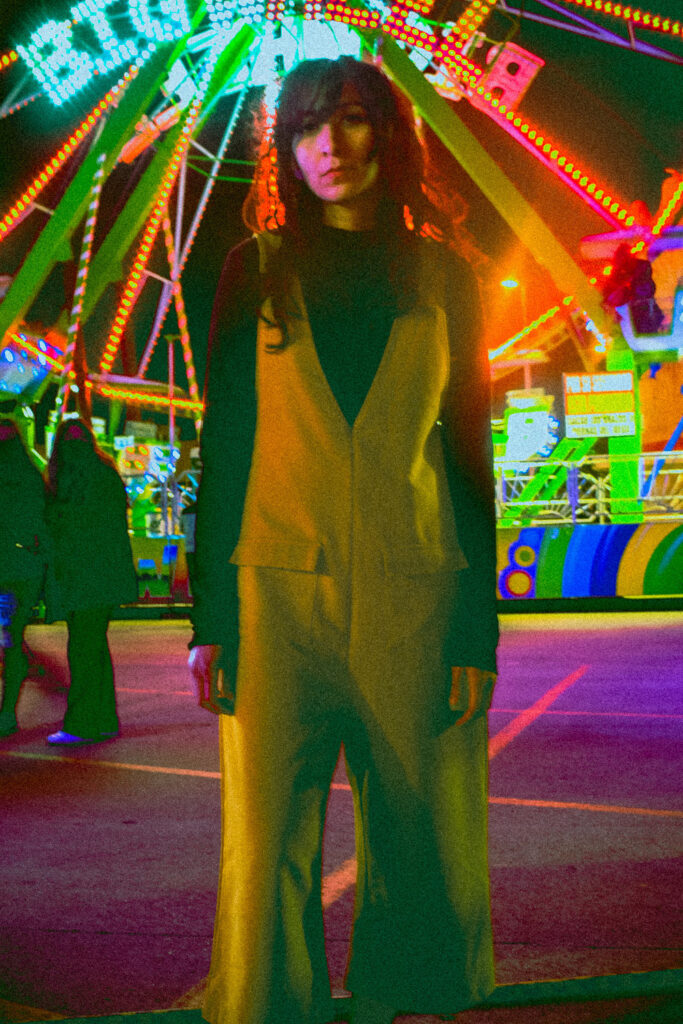
AM: When I was young I read a lot of Canstaneda’s books. When listen to your last album, I subconsciously go back to the images of shamans from Mexican deserts and their reality bending ways of moving through the multiverse, not available in everyday life. Do you consider yourself a shaman-like person of 21st century? The reality changes when influenced by your music.
JZ: Oh wow, it’s great that you are having that experience, but I wouldn’t dare to name myself a shaman. It’s quite a big title.
AM: By the way, a trumpet was used in that number which adds a pretty strong layer of electronica surrealism. Do you have any limits in the instrumentarium used in your work?
JZ: I try not to have any limits when I’m creating, but I’m fully aware that I have limitations that I can’t change. I can’t translate all my ideas into reality. I adapt to what I have around me and sometimes I have to change an idea if it’s impossible to achieve. Like for example in “Lineal” I imagined the final slow crescendo with a small orchestra, which was impossible, because of economic factors, etc. Therefore I recreated what I had in mind with the electronics. But with “Nina”, I imagined that trumpet and I was super lucky that my dear friend Freddie Murphy was up to record it.
AM: Continuity and discontinuity – is one way of interpreting “Del Aire”. That album is like an expanding spiral. Music that can be infinitely played and with every moment, it expands to new regions. How do you perceive this?
JZ: It’s curious that you used the word spiral. Because I started recording that album during a very strict lockdown, my perception of time changed completely during those months. It all felt more circular. Around those days I saw a praying mantis in my house, on a wall outside my front door. It was very still, it didn’t move for days. Not even a centimeter. I did some research about those incredible insects and I learned some things. I found some clarity in stillness.
AM: Your music also brings to mind visual arts, especially those abstract ones. I have an impression that many of your pieces are built like that. Do you see your work as musical “paintings” where everything is allowed and all elements are connected with each other in some sort of hallucination?
JZ: Yes, you are right about that. I’m very inspired by visual arts. In “Del Aire” I recorded some pulsing sounds as a base or bass lines to delimit the time/space where I could later on place the other elements. I’m not thinking about specific structures, therefore I can focus more on texture and shape and other things. I don’t think it sounds very abstract though, it’s just an initial inspiration.
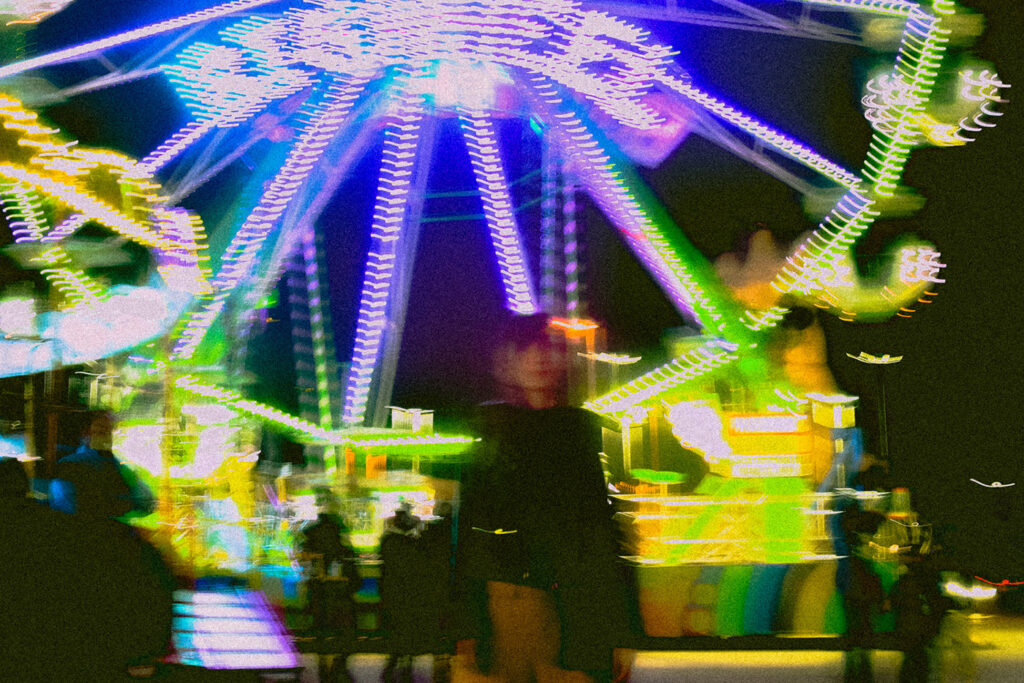
AM: Are there other art forms that inspire you, such as film, painting, photography?
JZ: Yes of course, I think everything I do and absorb outside the studio affects what I create. That’s where the hard work is in my case. With “Del Aire” I was very inspired by a couple of poetry books a dear friend of mine sent me. The poet is Mario Montalbetti.
AM: How do you get on with performing your music on stage? Do you recreate exactly what is on the album or do you treat it more like a core that you add improvised elements to it?
JZ: The albums are just a core as you said. Even if the live set it’s mainly electronic I use some acoustic/electroacoustic elements live. Songs get longer and I interconnect them through some improvised passages.
AM: Could you tell us a bit about your gear / techniques you use when composing the music?
JZ: It has been very different on every record. But on the latest one, I wrote most of the songs with a Korg Minilogue connected to some effects. Sometimes a delay, a phaser and a ring modulator. And I always use the Line 6 DL4, mainly because of the looper, that way I can do layers while I’m rehearsing. I always connect a mic for the vocals too, in case something comes up. I had everything ready to record directly into the computer.

AM: How does the experimental, avant garde, independent scene look like in Mexico?
JZ: It’s amazing. As the country is huge, you can see all kinds of experimental scenes all over, all of them very interesting and very active, diverse and interconnected. I’m particularly inspired by some experimental des-centralized scenes.
AM: Could you recommend to us some projects worthy of attention in your opinion?
JZ: Concepción Huerta, Amor Muere, Microhm, Amina Cyu, Laura Luna Castillo, Sima Negra, Alina Maldonado, Ana Ruiz, Ñois, Mito del Desierto, Simonel, Hidhawk.
(You can listen to the mentioned projects here)
AM: Thank you, I’d be happy to listen. Besides Lorelle Meets the Obsolete do you collaborate with other musicians. Can we expect more collabs from you?
JZ: I recorded some vocals last year for two different bands, good friends both of them. Maybe those will be released this year, I’m not sure.
AM: Are you already thinking about material for the next J. Zunz album?
JZ: Yes, I had some ideas while I was touring. I’m excited.
AM: Thank you for the interview and good luck with your plans.
JZ: Thanks so much to you and all my love to your readers.
tr.: m.o.n.